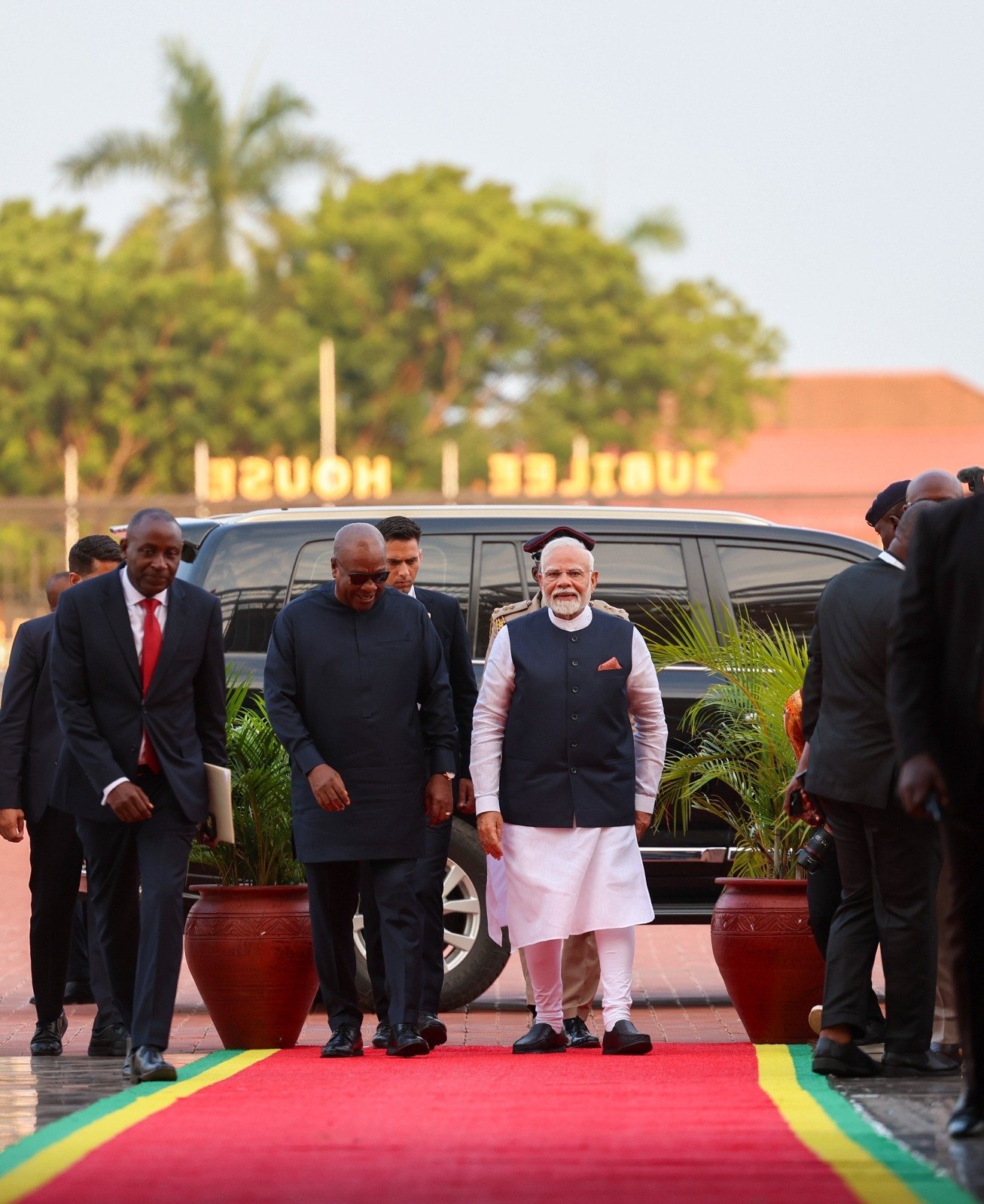Narendra Modi in Ghana: What it means for Global South? Read on

As Prime Minister Narendra Modi begins his 5 nation tour to the African continent today with first stop at Ghana, the perceived importance of the tour cannot go unnoticed to the world. The Prime Minister is set to visit Ghana followed by Trinidad and Tobago, Argentina, Brazil and will end with Namibia.
The Brazil part of his tour will also include the very important BRICS summit this year. The tour will a stepping stone into solidifying strategic partnerships across the Global South. To add to the enthusiasm is the key importance that this is the first visit to Ghana by an Indian Prime Minister in over almost three decades. The last Prime Minister to visit Ghana was PV Narasimha Rao in 1995.
Beyond the ceremonial optics of a bilateral visit, PM Narendra Modi's visit is deeply rooted in India-Ghana relations which was etched by the iconic leaders of both the countries, first Indian Prime Minister, Jawaharlal Nehru and Prime Minister Kwame Nkrumah of Ghana.
Renewing Historical LegaciesIndia-Ghana relations are tied together in our mutual shared colonial past. Both countries were colonies of Great Britain and got their Independence only 10 years apart. After India's independence in 1947, Jawaharlal Nehru was up front about ending the idea of colonialism and as a result supported Ghana's pledge for self rule. Ghana was the first sub-Saharan African country, previously known as 'Gold Coast', to break free from colonial rule in 1957, exactly 10 years after India's. The early leaders shared each other's view of a post-imperial world order with new independent countries.
Incidentally, Nehru and Nkrumah were co-founders of NAM and wished to steer clear of cold-war hassle. Together, they advocated a new path: one that emphasized sovereignty, neutrality, peaceful dispute resolution, and resistance to neocolonial pressures.
However, as Nkrumah was ousted in 1966 and changing world order shifted India's focus and bilateral relations between the two countries were left unnurtured.
It wasn't until the early 2000s, under President John Kufuor’s leadership, that the India-Ghana connection began to warm once again. India’s assistance in building Jubilee House—the Ghanaian seat of government—was a powerful sign of this reengagement.
Narendra Modi's TourThe world we live today is drastically different from the world of 1960s. While NAM has lost it's prominence in the new world of multilateralism today, the ethos of south-south cooperation lives on.
Narendra Modi has constantly emphasized importance of the African continent and sees it as a core crux of his foreign policy matrix. The India–Africa Forum Summits and the International Solar Alliance are prime examples of Delhi’s evolving soft-power strategy. From offering 50,000 scholarships to initiating Pan-African e-Networks in healthcare and education, India is positioning itself as a reliable and democratic partner unlike China's neo-colonial benefactor mindset.
Prime Minister Narendra Modi's Ghana tour is of greater importance to showcase India pivoting towards West Africa. Any India-Africa partnership generally centres around South Africa, but Ghana represents a rising gateway to an increasing strategic region.
The bilateral economic numbers are telling. Trade rose from US$1 billion in 2011–12 to US$4.5 billion by 2018–19, and while the pandemic caused a brief dip, trade has since rebounded to US$3.3 billion by 2023. We now rank as Ghana's third largest trading partner next only to China and Switzerland.
India’s investments are equally impressive. Over 700 Indian-led projects dot the Ghanaian landscape—from B5 Plus, a major steel manufacturer, to Melcom, the country’s biggest supermarket chain. Indian companies have invested over US$2 billion in Ghana as of 2021, with major contributions to light manufacturing, pharmaceuticals, energy, and agro-processing.
India also supported with it's expertise in the construction of the Tema-Mpakadan railway line. It shows India's strength in infrastructure development, a sector which has been long dominated by China, only better because unlike China's debt-heavy Belt and Road Initiative, India emphasizes on sustainability, capacity building and mutual growth.
Strategic Cooperation Beyond EconomicsModi’s visit also points to growing collaboration in non-commercial domains—particularly defence and technology. As Ghana modernizes its security infrastructure and diversifies its partnerships, India stands ready with military training programs, defence equipment, and cyber-security cooperation.
The Road AheadPM Modi's trip should be viewed on the larger aspect of geopolitical context as it follows the BRICS summit in Brazil 3 days later. The optics is clear- India is striving hard to reshape global governance and is deepening it's alliance with the Global South. The African continent has been only looked from the lens of resourcing raw materials, but India's is asserting this partnership with quiet confidence.